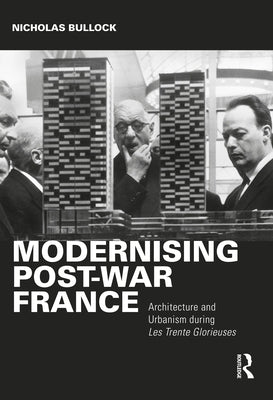Before you leave...
Take 20% off your first order
20% off
Enter the code below at checkout to get 20% off your first order
Discover summer reading lists for all ages & interests!
Find Your Next Read

This book is about the role played by architects, engineers and planners in transforming France during the three post-war decades of growing prosperity, a period when modernisation was a central priority of the state, promising a way forward from the shame of defeat in 1940 to a place at the centre of the new Europe.
The first part of the book examines the scale of transformation, showing how architecture and urbanism both served the cause of modernisation and shaped the identity of the new France. Mainstream modernism was co-opted to the service of the state, from major public buildings to Gaullist plans for the transformation of Paris to establish the city as the 'capital' of Europe.
By contrast, the second part of the book explores the critique of state-sponsored modernisation by radical architects from Le Corbusier to the young Turks of the 1960s such as Georges Candilis and the students who attacked the banality of mainstream modernism and its inability to address the growing problems of France's cities. Following May 1968, the Beaux-Arts was closed, the Grand Prix de Rome, symbol of the old order, abolished - for a while the establishment might continue as before, but progressive architecture was set on a new course.
Beautifully illustrated and written to be accessible to all, the book sets the discussion of architecture and urbanism in its social, political and economic contexts. As such, it will appeal both to students and scholars of the history of architecture and urbanism and to those with a wider interest in France's post-war history.
Nicholas Bullock, a Fellow of King's College, was Professor of the History of Architecture and Urbanism of the 20th Century in the Department of Architecture, University of Cambridge, and lectured at the Architectural Association in London for over 40 years. Originally admitted for modern languages, he read architecture at Cambridge and completed his Ph.D. under the supervision of Sir Leslie Martin. He was a founder member of the Martin Centre for Architecture and Urban Studies, established in 1967. He has published widely on the architecture, housing and planning issues of the 20th century in Britain, Germany and France.
Thanks for subscribing!
This email has been registered!
Take 20% off your first order
Enter the code below at checkout to get 20% off your first order